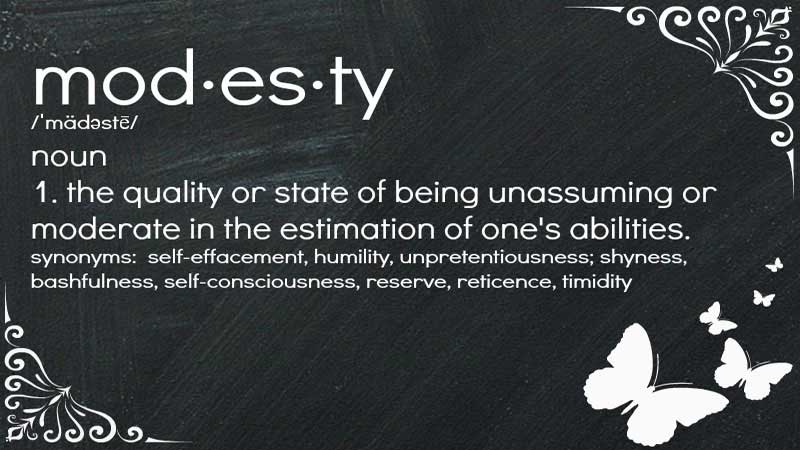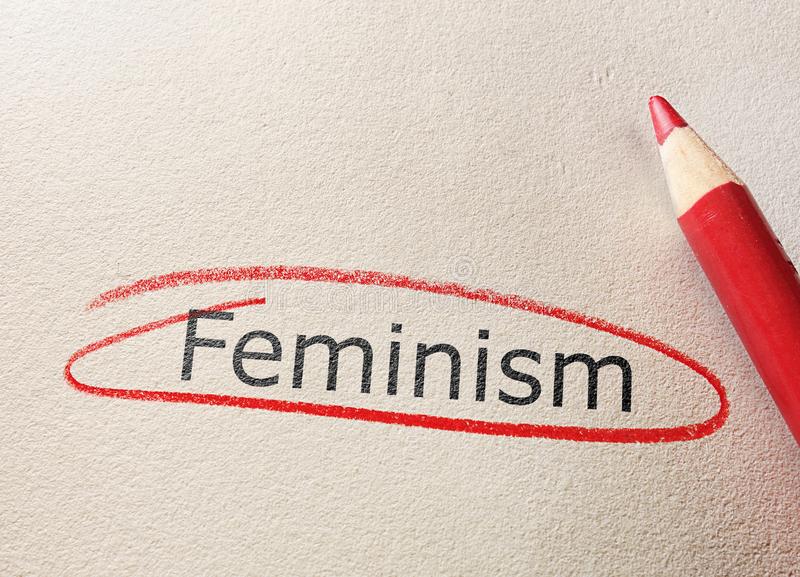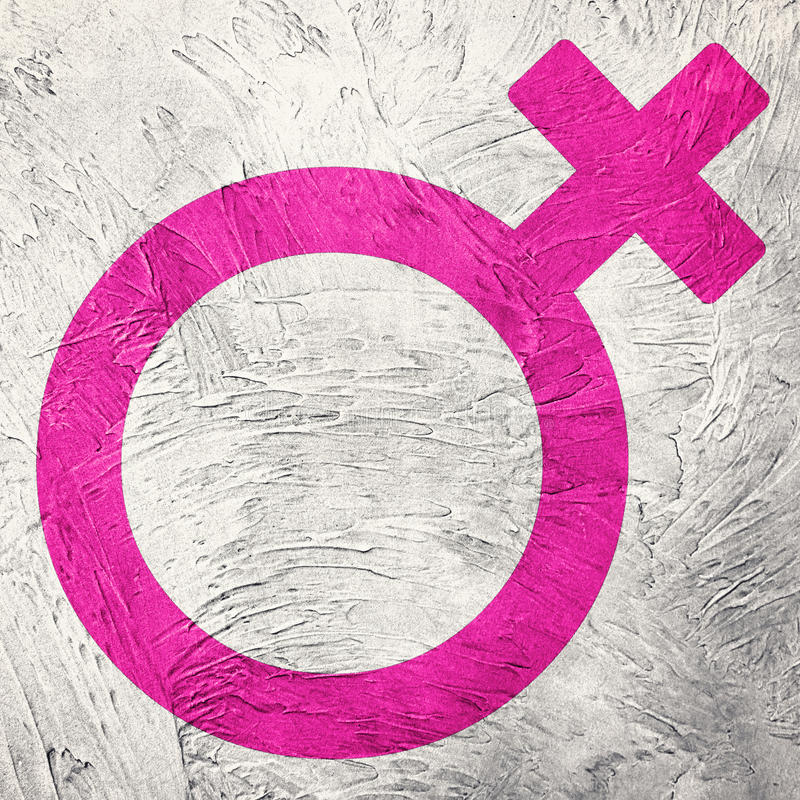

Fatimah (AS) the Daughter of Prophet Muhammad (PBUH&HP)
The status of Fatimah, the most beloved daughter of Prophet Muhammad (PBUH&HP) and Khadijah, is so great within the religion of Islam that our last prophet has said: “Fatimah (AS) is part of me, whoever annoys her, annoys me and whoever pleases her, in fact, he/she pleases me” [1] He has also said: “Fatimah (AS) is the leader of the women of the worlds and a role model for all Muslim women” [2].
The history of Islam has witnessed the immense respect that the Prophet (PBUH&HP) had for Fatimah Zahra (AS) which also reflects the importance of women in society. In pre-Islamic times when Arabs would bury their daughters alive, Allah revealed the Chapters of al-Kawthar, and Dahr with the birth of Fatimah (AS) to praise her [3].
According to some Quran commentaries, when the Quraysh tribe [i] said that the Prophet (PBUH) had no offspring, the chapter of al-Kawthar was revealed:
“Indeed We have given you abundance (al-Kawthar);
So pray to your Lord and sacrifice,
Indeed it is your enemy who is without posterity” (108:1-3).
Al-Kawthar means the abundant good, i.e., the abundant offspring that the Prophet (PBUH) would have through his daughter Fatimah Zahra (AS) especially after the death of his son (Qasim), which made the Quraysh men say he was cut off from male children. In fact, this was a reply to those people and their effort to weaken the Prophet's spirits just because he did not have a son [4].
Childhood of the Fatimah (AS), the Daughter of Prophet Muhammad (PBUH&HP)
Fatimah (AS), the daughter of Prophet Muhammad (PBUH&HP) was born on the 20th of Jumada al-Thani (the sixth month of the Islamic Lunar calendar), five years after Muhammad (PBUH)’s prophetic mission (Be’that).
After losing her mother as a young child, she looked after her father so devotedly that Muhammad (PBUH&HP) used to call her “Umme Abiha”, i.e., the mother of her father. This was a really hard time for the family because Abu Talib (the leader of Banu Hashim [ii] and the prophet’s uncle) who was the protector of Muhammad (PBUH&HP) from the animosity of the Quraysh also died in the same year as Khadijah.
So in Fatimah’s (AS) early childhood, there was no place for leisure and playing childish games. Rather, she fulfilled an important role accompanied by motherhood characteristics in her father’s life with all the suffering, mockery, and humiliation he was facing. She would comfort him, empathize with him, relieve his pain, and take care of him with kindness [5].
Marriage
When it was the right time for the daughter of Prophet Muhammad (PBUH&HP), Fatimah (AS), to get married, and after her cousin, Ali ibn Abi Talib (AS) proposed to marry her, the Prophet (PBUH&HP) consulted with her and asked if she would accept his marriage proposal. In fact, Muhammad (PBUH&HP) wanted to encourage Muslims to also seek their daughters’ opinions and avoid wrong pre-Islamic beliefs about girls.
When Fatimah (AS) was asked about this (Ali (AS)’s proposal), she respectfully sought her father’s advice and the Prophet (PBUH&HP) said: “God has authorized this marriage”. Fatimah (AS) then replied that she was satisfied with what Allah and His Prophet (PBUH&HP) were pleased with.
Fatimah (AS) was the model of Prophet’s teaching among women just as Ali ibn Abi Talib (AS) was the best embodiment of his instructions and manly qualities among men; they were the most suitable couple to be married. So after receiving Fatimah’s (AS) consent, their marriage took place in the simplest possible manner [6].
A few days later, the Prophet (PBUH&HP) called on his daughter and asked her how she had found her husband. She said that he was the best companion in devotion and obedience to God. Later, he asked Ali (AS) how he had found his wife, and he said that he found her the best companion in giving service to the Creator.
Fatimah Zahra (AS) aided her husband in his worldly and religious affairs and cooperated with him in achieving his exalted goals. She was responsible for the household work; made dough, baked bread, and cleaned the house; in return, Ali (AS) vouched to take care of the outside work [7].
It has been narrated that once Imam Ali (AS) saw that Fatimah (AS) had been working so hard that she got blisters on her hands. He decided to ask the Prophet (PBUH&HP) for a housekeeper. But Prophet Muhammad (PBUH&HP) said that he would teach them something instead that would do them better than having a housemaid. He told them to recite the Tasbih of Fatimah Zahra before sleeping; that is 34 times “Allahu akbar,” 33 times “al-hamdu lillah,” and 33 times “Subhan Allah.”
It is strongly recommended to say this Tasbih [iii] as a devotional act after each prayer.
Children
God bestowed upon Fatimah (AS) and Ali (AS) four children; two sons, Hassan (AS) and Hussain (AS), who were the second and the third Infallible Imams; and two daughters, Zainab (AS) and Umme Kulthum (AS).
Fatimah (AS) portrays excellence in her role as a mother and displays a model for all the God-fearing parents in the upbringing of her four children. It has been narrated by a companion of the Holy Prophet (PBUH&HP) that one day the daughter of Prophet Muhammad (PBUH&HP) was busy grinding some grain when her older son Imam Hassan (AS) started crying. The companion offered to help her with comforting the child, but Fatimah (AS) preferred to take care of her son herself. This shows how important it is for a child to have her/his mother around her/him as much as possible since only a mother can truly soothe her child and no one else can be as much of comfort as a mother [8].
She always read passages from Quran when she put her children to sleep in the crib and so they all grew up hearing Quran from their infancy, and the words of God became etched upon their young hearts. Through such osmosis, the Quran and the children of Fatimah (AS) became inseparable for all time [9].
The status of Lady Fatimah (AS), the Daughter of Prophet Muhammad (PBUH&HP)
It has been said that this blessed family vowed to fast for three days if their sons recovered from an illness. They became well, and the family fasted for three consecutive days without eating any food giving away their Iftar (breakfast) [iv] to a beggar, an orphan, and a prisoner who arrived at their door and asked for food. The 76th chapter of the Quran (Dahr) was revealed in praise of this family and their extremely charitable act in the way of Allah [10].
“They fulfill their vows and fear a day whose ill will be widespread. They give food, for the love of Him, to the needy, the orphan and the prisoner, saying, ‘We feed you only for the sake of Allah. We do not want any reward from you nor any thanks.’ Indeed we fear from our Lord a day, frowning and fateful. So Allah saved them from the ills of that day and granted them freshness and joy. And He rewarded them for their patience with a garden and garments of silk” (76:8-12).
Fatimah (AS) actually showed such generosity and compassion for the poor that no destitute or beggar ever returned from her door unattended.
As well as being an exemplary daughter, a loving and supportive wife, and a caring mother, she played an active part as a very powerful, intellectual, and aware member of the society.
Along with all her feminine qualities, she was well-aware of her rights and whenever necessary stood up for them, instead of suffering like a helpless victim. She would make herself available for people who needed answers or clarifications on complicated issues. Her sermons and sayings are evidence of her strong character and noble mind.
She was also a very courageous lady who accompanied the Prophet (PBUH&HP) in many wars. Her genius, wisdom, determination, will-power, piety, patience, knowledge, and nobility, both in words and deeds, were inherited from her illustrious father.
In short, the existence of Fatimah Zahra (AS), the daughter of Prophet Muhammad (PBUH), along with her skills of eloquence, her political and social expertise, and powerful foresight, demonstrates how a Muslim woman can attain high spiritual and mystical positions and how a woman can play different roles powerfully, and positively influence the course of history by her social contribution [11].
Notes:
[i] A powerful merchant tribe that controlled Mecca and its Kaaba and that according to Islamic tradition descended from Ishmael. Prophet Muhammad (PBUH&HP) was born into the Banu Hashim clan of the Quraysh tribe.
[ii] A clan of the Quraysh tribe
[iii] The repetitive utterances of short sentences in the praise and glorification of Allah.
[iv] The evening meal with which Muslims end their daily Ramadan fast at sunset.
References:
Share This Article

Hijab in Islam : the Real Meaning
When talking about Hijab in Islam , the first impression that comes to mind is a cloth covering certain parts of women’s body. But is this the real meaning of the Hijab? Is that all Islam intended by ordering to wear Hijab; covering women’s bodies? This is surely one of the functions but is not the whole thing.
Hijab in Islam concerns men as much as women. Indeed, by introducing Hijab, Islam aims to set out a framework on how we dress, how we look, and how we interact in society. This also originates from a superior objective: limiting the human desires towards the opposite gender to one’s private life in the form of a legal marriage and letting the society focus on work and productivity [1].

The Islamic Dress Codes
Islam requires both women and men to dress simply, modestly, and with dignity. Simply said, one should not dress in a way to draw the attention of the others to their physical features. Islam has forbidden wearing the clothing that attracts the attention of the general public, making its wearer known for it because of the type of the fabric, its color, model or because of being worn and unclean [1]; and this applies to women and men both.
According to the Holy Quran, covering and Hijab of body dates back to the time of Adam and Eve in the Garden of Eden: “So when they tasted of the tree, their nakedness became exposed to them, and they began to stitch over themselves with the leaves of paradise.” (7:22). This demonstrates that following the standards of modesty is innate in all human beings, and so do the Islamic dress codes.
Since modesty as the reason to wear the Hijab in Islam is a subjective term, the Quran and Sunnah [i] have laid out the bare minimum to prevent any confusion. The absolute minimum covering in Islam set for men is loose and unrevealing clothing from his navel to his knee [1]. Men are not allowed to wear gold jewelry, silk clothing, or adornments that are considered feminine [1].
Muslim women, like men, are not permitted to wear tight and revealing clothing; especially the ones showing the details of their body. The clothing should cover their hair and body, but covering the face and the hands, from the wrist to the fingers, is not mandated [2]. It is also forbidden for women to wear strong perfume, heavy make-up, or such jewelry that makes a jingle noise with movement and attracts the attention of others, especially strange men. They should not reveal their ornament either. These all let the Muslim women to be recognized in society by the content of their character rather than by their physical appearance and do force men to cease objectifying women.
It should be noted that besides these dress codes, Islam has mandated us to wear beautiful and clean clothes; especially when dealing with others and during prayers: “O Children of Adam! Put on your adornment on every occasion of prayer” (7:31). This also should be considered as much as the clothing rules.
Controlling the Glance as A Part of Hijab in Islam
Islamic precept has introduced a particular way of decency by presenting the concept of controlling the gaze. It is stated in the Quran that: “Tell the faithful men to cast down their looks” (24:30); and: “And tell the faithful women to cast down their looks” (24:31). It means that women and men are both required to keep their gazes downcast unless permitted [ii].
Imam Sadiq (AS) said: “A glance is a poisoned arrow from the arrows of Satan. He who refrains from it [glancing] for the sake of Allah and nothing other than Him, Allah will grant him a faith, the taste of which he will experience.” [3].
Keeping the glance downcast prevents men from lustful thoughts when looking at any woman other than their wife and allows women to protect themselves and guard their modesty. If one truly believes that God is present everywhere and at every second, He sees all he does [iii], and “He knows the treachery of the eyes, and what the breasts hide.” (40:19), he controls his glance in public and in private.

Limits to Talking to the Opposite Gender
As society is composed of women and men, their social interactions and communications are inevitable. Emphasizing the concept of decency, Islam has special guidelines for the interactions between members of the opposite sex. Islam, as the religion of moderation [iv] [4], does not allow a free relation, neither severely restricts this interaction, but allows women and men to communicate in good intention [5]. This means that the speech should be direct and both sides should consider the human identity of the other person, not the gender.
Allah says in the Quran: “wives of the Prophet! You are not like other women: if you are wary [of Allah], do not be complaisant in your speech, lest he in whose heart is a sickness should aspire; speak honorable words.” (33:32).
Although this verse of the Quran addresses the wives of the Prophet Muhammad (PBUH&HP) who were mostly at the old age, it also applies to all other women especially young ones [6]. This requires Muslims, specifically women, to use a serious tone of voice and expression when talking to the opposite gender. Otherwise, their sweet words might seduce the person whose heart might be diseased with lust.
Notes:
[i] The lifestyle and sayings of Prophet Muhammad (PBUH)
[ii] e.g., in the case that a witness looks at the face of a non-mahram to recognize him/her.
[iii] “does he not know that Allah sees [him]?” (96:14)
[iv] “Thus We have made you a middle nation that you may be witnesses to the people” (2:143)
References:
- HIjab in Islam
- A. Aroussi Howayzi, "Tafsir Noor al-Thaqalayn", vol. 3/589, T. 105.
- M. B. Majlesi, "Bihar al-Anwar", vol. 101, p. 40.
- N. Makarem Shirazi, "Tafsir Nemooneh", vol. 1, p. 483.
- Hijab in Holy Quran
- M. Qara'ati, "Tafsir Surah al Ahzab."
Read More

Women, Beautiful Flowers
“Women’s rights” is one of the most important and controversial issues in the world. Today, many people believe that social laws are against the rights of women and should be changed.
Feminism
The western world has experienced lots of social revolutions and movements till now including, Marxism, Communism, Abolitionism, etc. Usually, in these movements, people of a lower social class try to fight against the tyranny and oppression of a higher social class. One of these controversial movements has been Feminism which falls into three eras in the western world.
The first era dates back to the 17th and 18th centuries when the movement was against the Patriarchal culture in the west. As a matter of fact, women supporting Feminism in this era, wanted to be considered respected members of society and that the society understood that sex and gender was not the proper index for making the designation “lower or higher social class”. In other words, the first era can be considered as a philosophical view that indicates the physiology of humans doesn’t put them in a lower or higher position in the society and women should be recognized and respected as humans just like men.
Politicians, scientists and people gradually accepted Feminism in the first era but after a while, the Feminist movement approaches its second phase when feminists intended to be not only respected or considered the same but they also wanted to gain the same position in social activities and have the same jobs just like men.
Feminism in the second era is/was after equalizing the rights of men and women in the community i.e. women can do the same as men even in some complex jobs like Municipal services.
Nowadays, the whole world is facing the third phase of the movement which is called “Modern Feminism”. If we look more precisely into Feminism in the first and second eras we may notice that the main concepts of these two are justice and equality but in the third phase the core concept of modern Feminism is power. Feminists in the first and the second eras were defending (women's rights) against men but in contemporary Feminism they attack! and no one gets to complain; because if you disagree with this phase of Feminism you will be accused of being one of the cruel men who deprive women of their legitimate rights. In the third phase, Modern Feminism wants to create a new world where men are subordinate to women. (1)

Women and Religion
“Unto the woman He (God) said: 'I will greatly multiply thy pain and thy travail; in pain thou shalt bring forth children, and thy desire shall be to thy husband, and he shall rule over thee”
(Genesis, 3:16)
One of the most important causes that made women start the fight for their rights was religion in the west. In the Bible, Eve (The First woman ever) was the one who tricked man into eating the (Forbidden) Fruit of the tree in midst of the garden. In Judaism and Christianity in which the sin of Adam and Eve is considered an important turning point, women are so blamed and should be ruled over by men because of their sins. The Bible has so many bad (negative) views about women:
“Let the woman learn in silence with all subjection. But I suffer not a woman to teach, nor to usurp authority over the man, but to be in silence. For Adam was first formed, then Eve. and Adam was not deceived, but the woman being deceived was in the transgression.”
(The Bible, 1 Timothy 2:11 to 14.)
“And when they wanted wine, the mother of Jesus said to him, They have no wine. Jesus said to her, Woman! What have I to do with thee?”
(the Bible, John 2:3&4)
Women in Islam
“And of His signs is that He created for you mates from your own selves (husbands and wives) that you may take comfort in them, and He ordained affection and mercy between you. There are indeed signs in that for a people who reflect.” ( The Quran, 30:21)
In ancient Arab culture, women were all considered slaves and servants of men. Having a daughter was considered a great shame for Arabs so they would cruelly kill their daughters by burying them alive. In this regard the Holy Quran says:
“When the girl buried-alive will be asked (on the Judgment Day) for what sin she was killed?” (The Quran 81:8&9)
In this very harsh and dark atmosphere for women, Prophet Muhammad (PBUH&HP) rose and by bringing the Message of Islam, which was Justice and Equality, made clear to everybody that women are the same equality as men. We even can consider Prophet Muhammad (PBUH&HP) as one of the first and true messengers of Feminism.
In Islam, Allah, The Almighty does not differentiate between His pious servants, whether they are men or women.
“O mankind! Indeed, we created you from a male and a female…... Indeed the noblest of you in the sight of Allah is the most God wary among you.” (The Quran 49:13)
“We have enjoined man concerning his parents: His mother carried him through weakness upon weakness (the difficulty of pregnancy) …. Give thanks to Me and to your parents (both father and mother)” (The Quran 31:14)
Therefore, Feminism in the first and second phases are mainly accepted in Islam but there is a point to notice: In the Islamic view, men and women are equal but different. In the sight of Allah, the duties of men and women in society are not the same.
“And the male is not the same as female” (The Quran 3:36)
This is a sentence said by the mother of the Holy Mary (SA) in the Quran. She was after sending her lovely daughter to a place full of men and to a work which mainly men did (serving and working in the temple of Jerusalem). The Quran quotes this sentence to point out that males and females are different and cannot live in a society exactly like each other. For instance, both males and females are obligated to follow a rule named Hijab, but in different ways (The clothes that Muslim women should wear are different from what men should). However, men and women can both participate in social activities as the Holy Mary (SA) did in the temple of Jerusalem. Actually, the rule of the Hijab is for simplifying the communication between men and women in society while women are also safe from bothersome men. So as you see, men and women are the same in the sight of Islam but with different duties.
This is true about the social laws of Islam too. The Holy Quran says:
“Men are the managers of women” (The Quran 4:34)
“They (men) have a degree (in social activities) above them (women) ” (The Quran 2:228)
In the Islamic view, men are responsible for (taking care of) women and should financially support them and because of this, they have a degree in social activities above women but women have no such responsibility while they are also free to have jobs or properties of their own. This is because women are not created to work hard or face the difficulties and the hideousness in society or be responsible for the financial affairs of their families, but they are created to be the emblem of affection and mercy.
Imam Ali (AS) says:
“Female is a beautiful Flower, not a servant or hard worker”2
But the third Phase of Feminism which the whole world is facing now is not accepted by Islam. By equalizing the social duties of men and women and even by giving women many difficult responsibilities in society, Modern Feminism destroys the very souls of women that Allah created in the first place.
The last point to note is that how Muslims treat women in some countries like Saudi Arabia, has nothing to do with the teachings of the Quran and Islam. The way they act is actually the opposite of what the Holy Quran says.
Consequently, Islam accepts women as respected and valued members of the community and men and women are equal and Allah does not differentiate between them because of their gender. But in the Islamic view, Modern Feminism is actually against the rights of women and is not accepted at all.
References
- Women and Family’s Socio ـ Cultural Council Quarterly , vol.9 , Asghar Eftekhari
- Nahj al-Balagha, letter no.31
Read More

